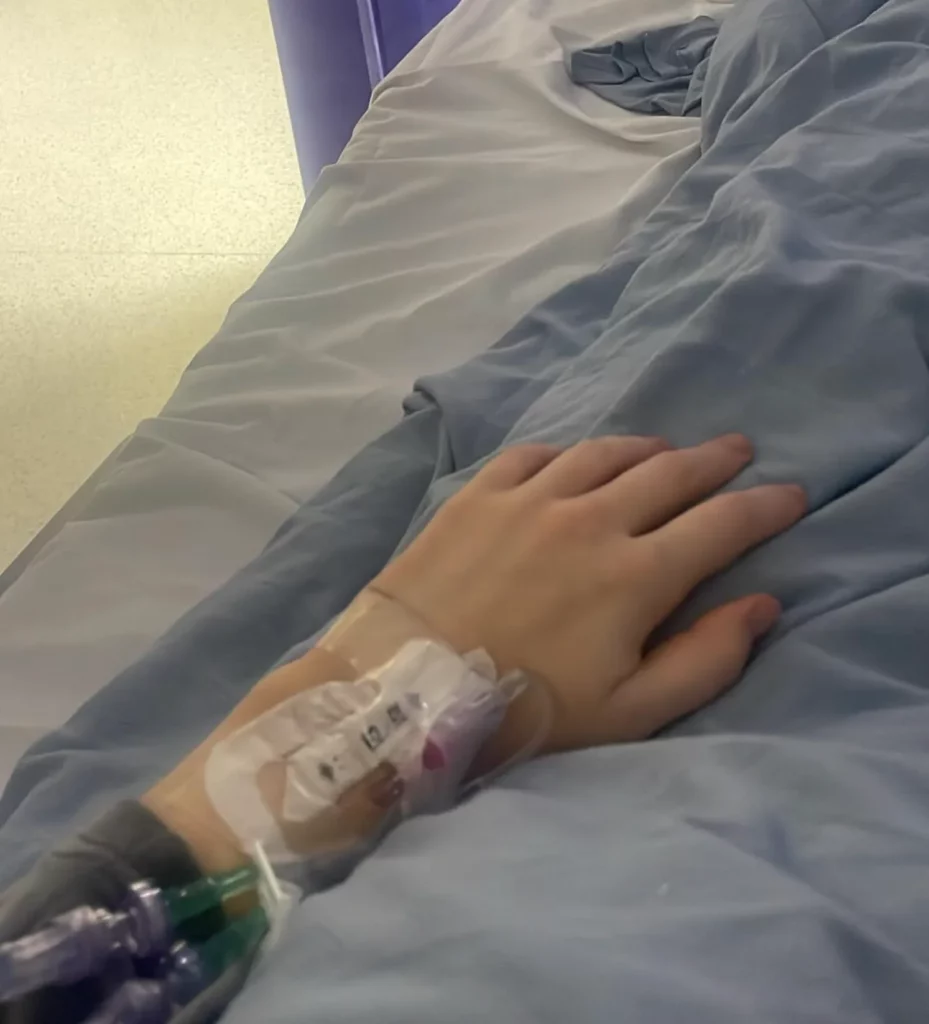Lucy Younger, a 24-year-old university student, began having unusual symptoms immediately before starting her degree at Goldsmiths, University of London. Lucy expected the ordinary disorientation and tiredness that comes with transitioning to university life, but what she experienced was far from normal.
Lucy had regular fading out, déjà vu, and even visual hallucinations, which concerned her. Despite this, doctors rejected her concerns, blaming her experiences on partying and excessive alcohol.
Lucy’s condition worsened during the following year. She began to have sensory hallucinations, including smelling bacon, tasting metal, and feeling pins and needles on her face.

Sharp headaches soon followed, becoming such that Lucy sought additional medical assistance. Unfortunately, doctors rejected her concerns once more, claiming that she was suffering from anxiety and stress as a result of attending university.
“I didn’t feel all that anxious,” Lucy said, thinking about the doctors’ dismissive attitude. “But they kept saying it was anxiety or drinking too much.”
Her concerns led to the prescription of antidepressants, but Lucy questioned their diagnosis. “I felt really happy with where my life was at that point,” she admitted, but her doubts developed as her symptoms worsened.
As her health worsened, doctors widened their theories, pointing to hormonal abnormalities produced by polycystic ovarian syndrome. Lucy, on the other hand, sensed that something was seriously wrong.
When the COVID-19 epidemic began in March 2020, Lucy returned home, where her symptoms worsened. She began having seizures, passing out, and losing consciousness.

The migraines became so intense that the entire right side of her body went numb. Despite this, doctors continued to reject her concerns, increasing Lucy’s irritation
Lucy began studying her symptoms online in an attempt to figure out what was going on with her. Her findings indicated either epilepsy or a brain tumor, but doctors dismissed her fears.
“They said I was too young,” Lucy explained. “They told me, ‘A girl like you wouldn’t have a brain tumor.” Her worries, however, grew.
Lucy felt powerless and sought counsel from a local pharmacist. She detailed her problem over the phone in tears, and the pharmacist responded by writing a letter to her doctor.
This letter pushed her GP to promptly refer her for a CT scan, which resulted in Lucy receiving the necessary testing. Lucy had a CT scan in July 2020, and the results revealed a benign brain tumor.

After months of dismissal and misdiagnosis, Lucy finally received an answer. Four months later, she had surgery to remove the tumor and began to recover.
Lucy returned to university in 2021 and graduated. As she reflected on her experience, she realized how close she was to an indefinite misdiagnosis.
“If I hadn’t caught my brain tumour early, there could have been a chance it wouldn’t have been removed,” Lucy said. “The ending could have been a different scenario.”
Lucy’s story emphasizes the significance of advocating for oneself inside the healthcare system. “You do know your own body,” she emphasized. “If there is something wrong, you need to advocate for yourself.
Lucy now lives a somewhat normal life, although she still suffers from epilepsy and short-term memory loss as a result of the tumor. Her story serves as a powerful reminder that doctors do not always have all the answers.

The path to diagnosis can be long and distressing for many people, including Lucy, whose symptoms often go unnoticed or misinterpreted. Yet, Lucy’s message is clear: “People think a brain tumour is a death sentence, but it’s not always that way.
Her experience shows the importance of following one’s instincts and fighting for answers, even when no one is listening. Lucy’s resilience and dedication eventually saved her life
Feature Image Credit: (Instagram/@lucy.younger)


